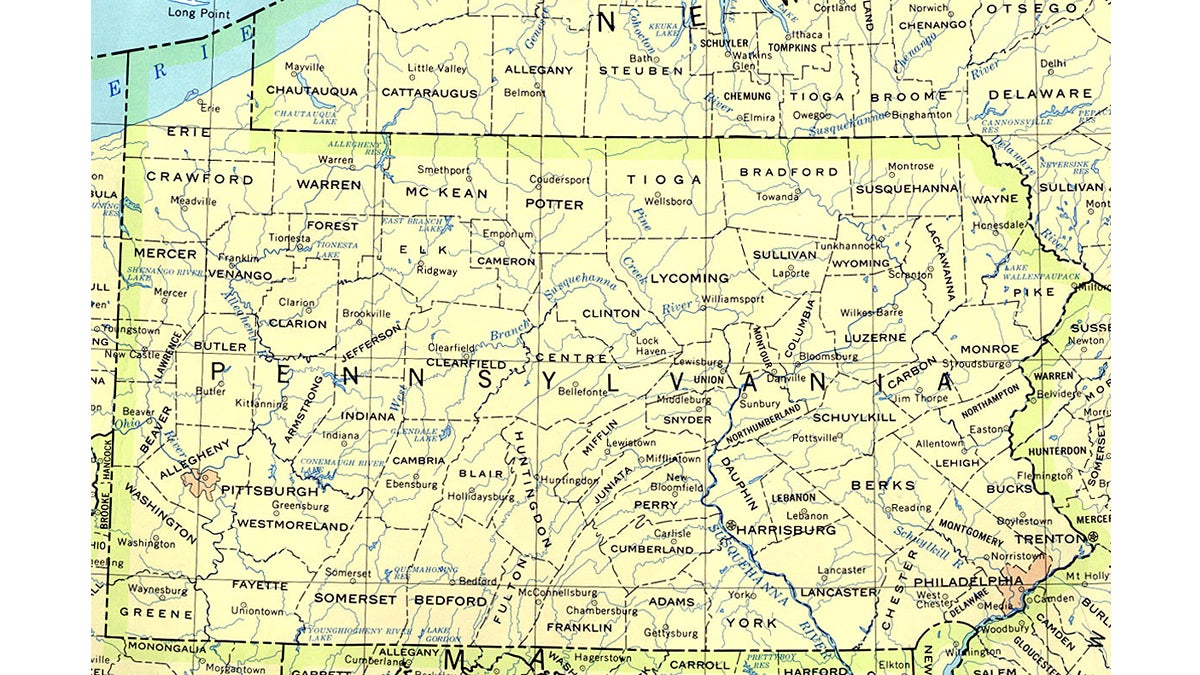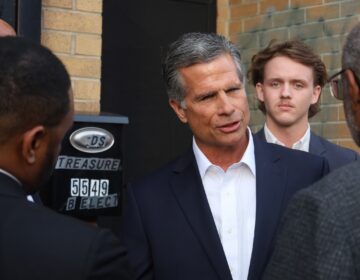Pa. counties call on state government to better support local public services
Pa.'s 67 counties signed on to a list of priorities they hope to achieve in 2018. But the local leaders say they cannot achieve their goals alone.

Map of the state of Pennsylvania showing county boundaries and names, county seats and rivers from the U.S. Geological Survey.
All 67 counties in Pennsylvania signed on to a list of seven priorities they hope to achieve in 2018, in a statement released this week by the County Commissioners Association of Pennsylvania. But the local leaders say they cannot achieve their goals alone.
The association put its highest focus on better providing human services for the most vulnerable, such as child welfare recipients.
Other priorities include providing better drug and alcohol programs, mental healthcare for county inmates, veteran services and voting system maintenance.
CCAP executive director Douglas Hill said those are “things that are absolutely in the headlines right now.”
But he said counties need more support from leaders in state government in order to provide local supports with greater fidelity.
“The services we provide are the result of requirements from the state and its law,” Hill said. “They have to be [our] full partners, allowing us as much administrative flexibility as possible. They also have to step up and pay an appropriate and a fair share of state and federal money, so that that cost is not all born by the local property taxpayers.”
In Blair county, for instance, the 2018 budget for autopsy and toxicology services is expected to increase fourfold because of the trend in local drug-related deaths.
Although state funds for county-provided child welfare received a modest boost in the last state budget cycle, other human services-related county budget lines took a significant hit. Funds for county administration went down 8 percent, and those for county assistance offices dropped 13 percent.
In general, the state’s human services budget, which at more than $12.1 billion comprises the second largest portion of the whole, was down 2 percent.
CCAP’s requests come at a time when new dollars have been hard to come by in the capitol. The General Assembly has been reluctant to raise state taxes, and Gov. Tom Wolf has made boosting education spending a top priority.
After a long state budget fight in 2017 that saw a deal finalized on the back of a gaming expansion and a borrowing scheme, the Independent Fiscal Office projects that the state is currently facing a $1 billion budget hole.
To cope with increasing demands in local public services, Hill said counties have both reduced operational costs and increased local taxes.
“What we’re seeking is the true reinstatement of a partnership between state and local government, so that the administration system is as efficient as it could be and the funding system is as fair and efficient as it should be,” Hill said.
The governor and leaders in the general assembly have not returned requests for comment.
WHYY is your source for fact-based, in-depth journalism and information. As a nonprofit organization, we rely on financial support from readers like you. Please give today.






